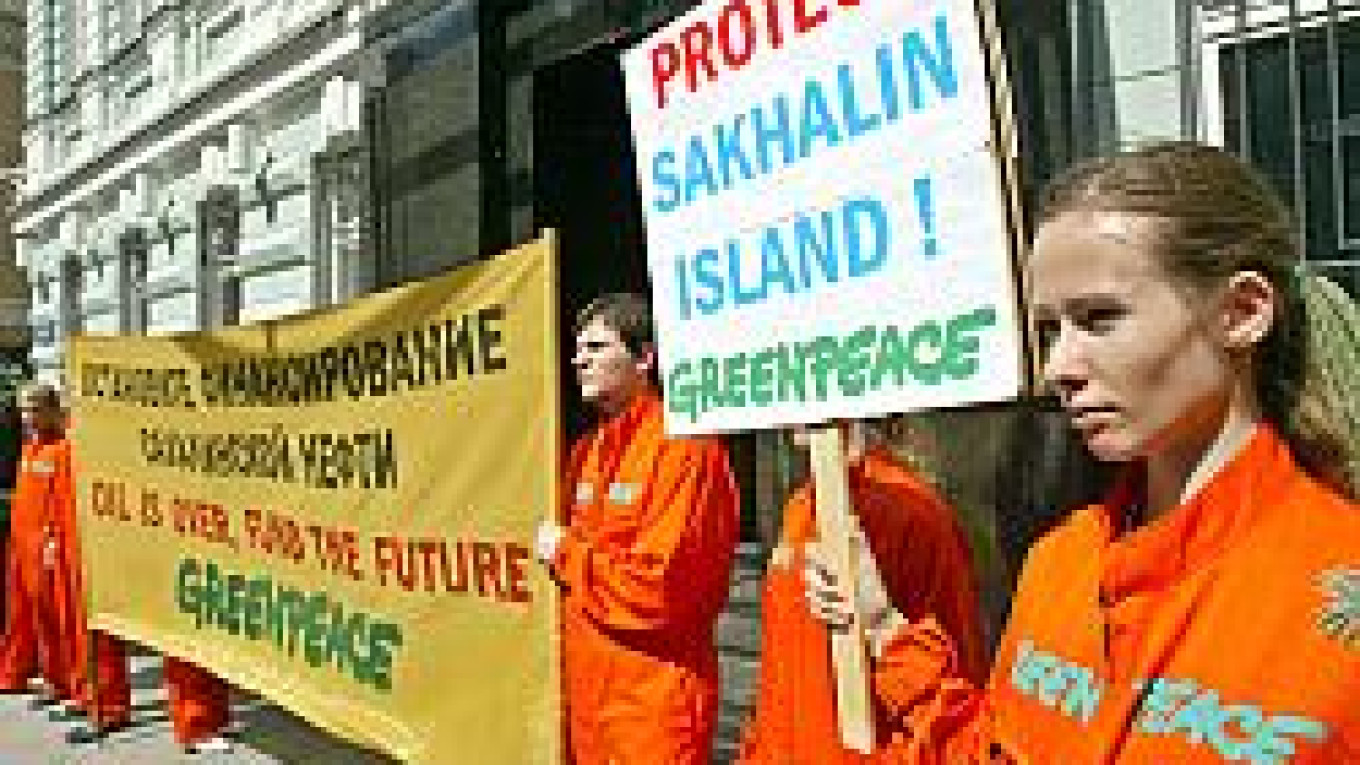In its role as financial adviser to the $10 billion Sakhalin-2 project, Greenpeace says Credit Suisse is facilitating work that threatens the island's fragile ecosystem.
"As we have seen, the oil companies working on the Sakhalin shelf have already shown their irresponsibility toward Sakhalin's fragile nature," said Vladimir Chuprov, head of Greenpeace's Russian energy division. "Now they need a Swiss guarantee to finish off the island's unique ecosystem once and for all."
"Pump chocolate from the Alps, not oil from Sakhalin," read one of the protesters' placards.
A population of rare gray whales, whose summer feeding grounds are located around the key Piltun-Astokhskoye offshore oil and gas field is falling, Greenpeace spokeswoman Yelena Surovikina said.
She added that a pipeline traversing the island risks polluting over a thousand rivers and streams, while construction work on a deep-water port for oil tankers is damaging the marine environment.
While project leader Royal Dutch/Shell announced earlier in the year that it would reroute pipelines around the whales' feeding grounds, concerns remain over waste generated by the onshore section of the pipeline.
Indigenous groups and environmentalists, however, say the massive drilling projects will harm the island's fragile maritime environment and disrupt traditional culture of the island's native inhabitants. In January, protesters blockaded construction sites belonging to Shell and ExxonMobil.
Earlier in the month the European Bank for Reconstruction and Development said it had identified problems with the project's pipeline and was delaying a crucial series of public consultations, without which the bank cannot proceed to the next stage of considering the loan.
In a statement on Monday, Credit Suisse said it had confidence that the project would not harm the environment.
"Credit Suisse Group conducts detailed reviews of transactions with potential environmental risks. In the case of Sakhalin, we concluded that the client is taking the environmental compatibility of the project, as well as the concerns of the NGOs, very seriously," it said.
A Message from The Moscow Times:
Dear readers,
We are facing unprecedented challenges. Russia's Prosecutor General's Office has designated The Moscow Times as an "undesirable" organization, criminalizing our work and putting our staff at risk of prosecution. This follows our earlier unjust labeling as a "foreign agent."
These actions are direct attempts to silence independent journalism in Russia. The authorities claim our work "discredits the decisions of the Russian leadership." We see things differently: we strive to provide accurate, unbiased reporting on Russia.
We, the journalists of The Moscow Times, refuse to be silenced. But to continue our work, we need your help.
Your support, no matter how small, makes a world of difference. If you can, please support us monthly starting from just $2. It's quick to set up, and every contribution makes a significant impact.
By supporting The Moscow Times, you're defending open, independent journalism in the face of repression. Thank you for standing with us.
Remind me later.


